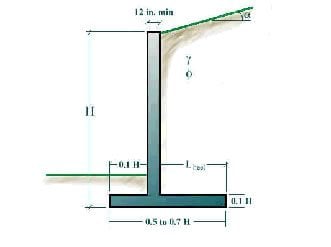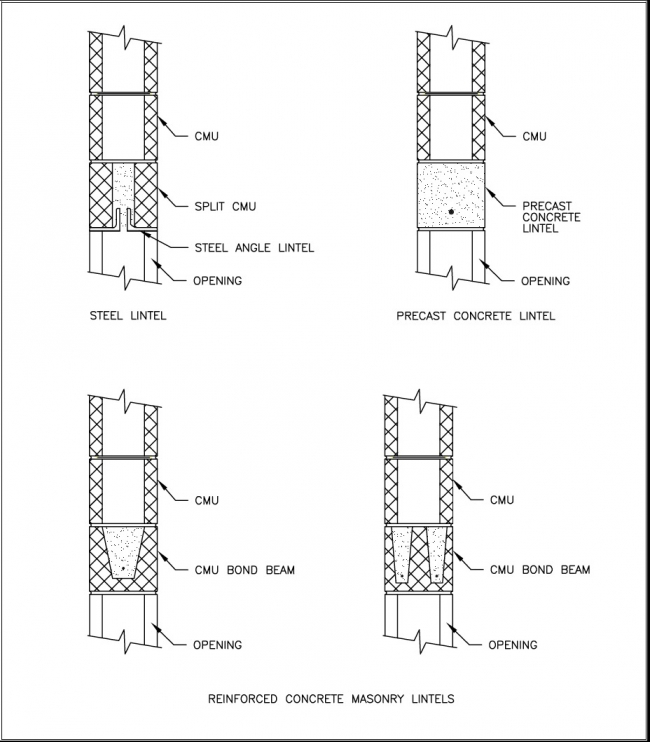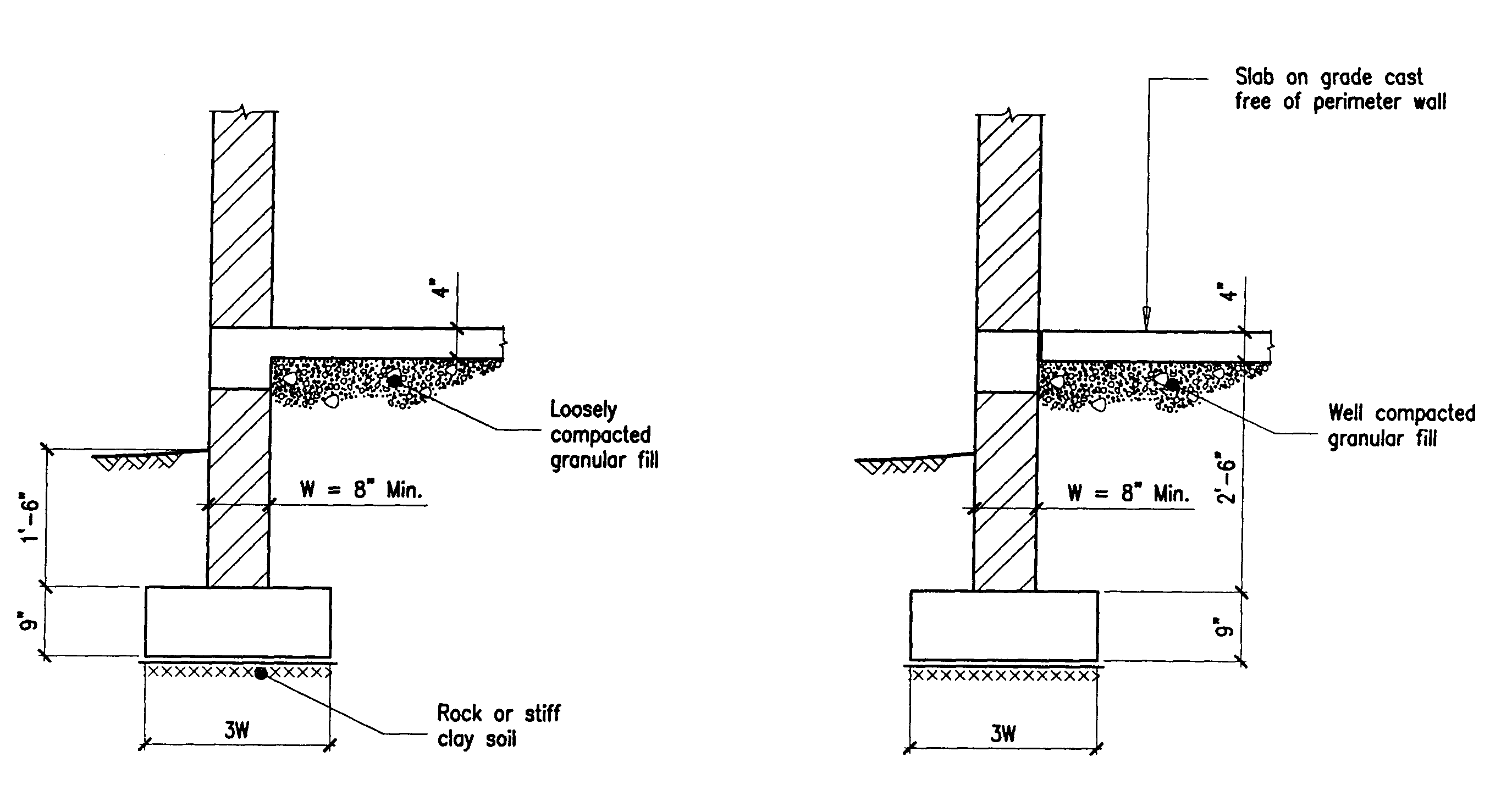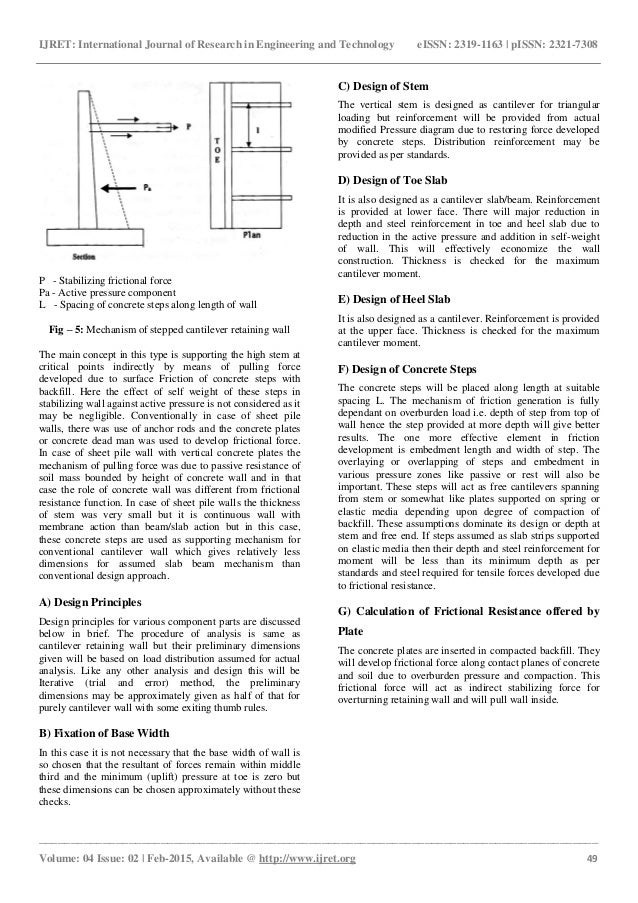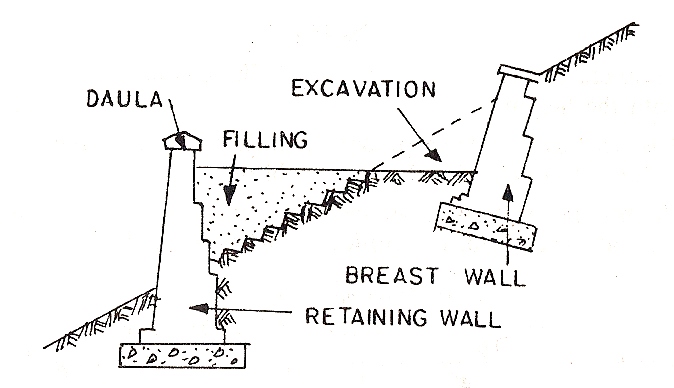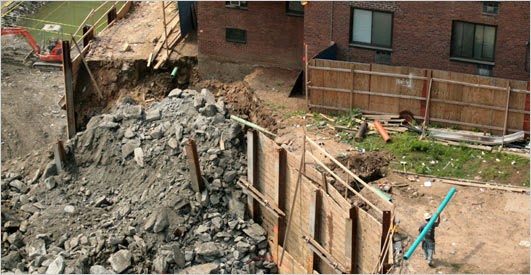Concrete Retaining Wall Thickness Rule Of Thumb
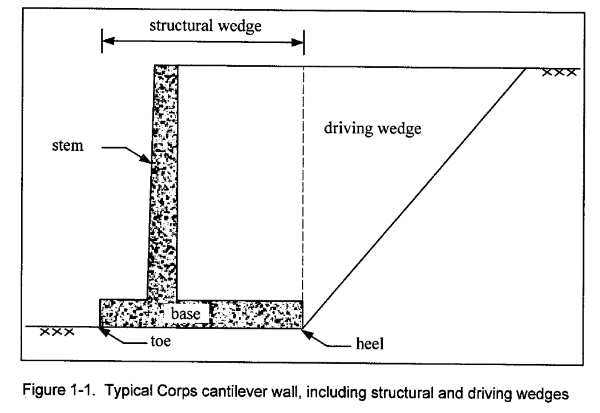
Design rules of thumb in the early stages of a project we are often.
Concrete retaining wall thickness rule of thumb. Cantilever retaining wall segmental retaining wall with geogrid r assumed plane of rupture soil wedge soil wedge. These rock baskets can be used to construct retaining walls. There are some basic rules of thumb for foundation wall thickness and these are outlined in many modern building codes. A very simple method to design a gravity retaining wall is to use the base width x 2 to calculate the height.
Approximate thickness h 10 14 2. This was often quite adequate for garden walls but due to the varying nature of sub soils topography of land and surrounding environment this does not always work. In the case of gravity walls the pure weight of the retaining wall holds the soil. There are many types of retaining walls.
In open areas a retaining wall failure may go unnoticed or may not be a concern to the owner. Gravity walls are made of rock concrete and masonry. By thumb rule method. Civilsolution foundation in this video we learn that how to design wall footings like width of foundation depth of foundation depth of concrete block etc.
Rule of thumb is 24 to 36 times the thickness gives the spacing in mm inches. The wall to the right is 800mm wide and 1600mm high. As a general rule you can build economical gravity retaining walls from 600mm. For cantilever sheet pile retaining walls the penetration below the bottom should equal approximately the unsupported height above.
Retaining walls must be stable and the usual rule of thumb for small height brick retaining walls is for the height to lie between 2 and 4 times the wall thickness. As a rule of thumb this method works and will give a factor of safety in excess of 1 5 in most cases. However when the wall is located adjacent to other structures the failure of the wall usually results in distress to the adjacent structure whether it is a pool a patio or a building structure. Earth retaining structures are an essential part of civil engineering.
Poured concrete foundation walls that are less than 8 feet tall and have soil outside that is 6 or 7 feet deep against the wall can often be 8 inches thick and function quite well. Stability can be checked by applying the middle third rule. Many years ago there used to be a rule of thumb that the thickness of a mass masonry retaining wall should be one third of the height.

